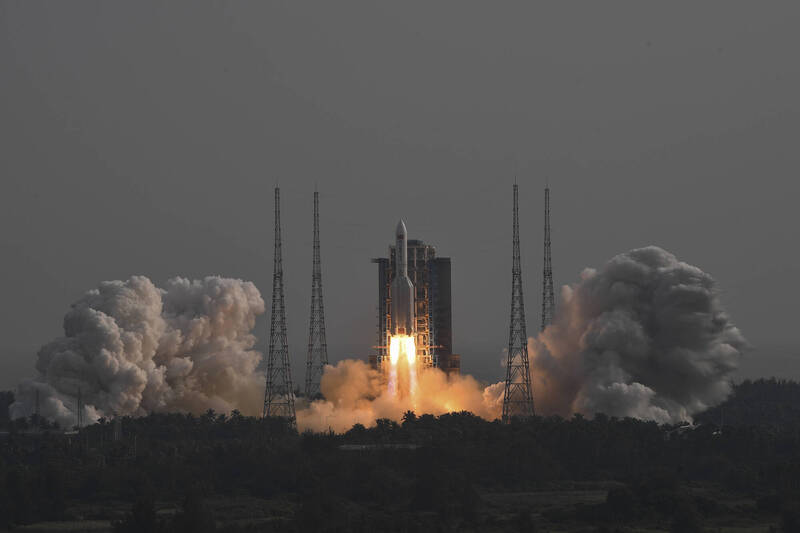China's Long March 5 rocket lifted off from the Wenchang Space Launch Site in Hainan province in late October last year.
(Associated Press file photo)
[Compiler Guan Shuping/Comprehensive Report] Jonathan McDowell, an astrophysicist at the Harvard-Smithsonian Center for Astrophysics in the United States, recently published a report stating that in terms of the number of space launches in 2022, China has already replaced Russia. It has become the second space power. At the same time, China also ranks first in the world in the number of defense-related satellites put into orbit.
The military news website Breaking Defense reported on the 6th that McDowell's "Space Activities in 2022" report pointed out that the United States launched 78 times last year, of which 72 were successful; China's space launches were 64 times, Among them, 62 times successfully entered orbit, and Russia successfully launched 21 times. Many of these countries’ launch activities carried multiple satellites. In terms of the number of defense-related satellites, China sent 45 satellites to orbit, the United States 30 satellites, and Russia 15 satellites. .
Please read on...
However, the report emphasizes that China's national security space activities are shrouded in mystery and it is difficult to determine the number of military satellites launched by China.
"The 'test' satellite is a pseudonym used for several Chinese government satellites," the report said.
The report pointed out that the number of satellites launched and put into orbit continued to increase rapidly last year, mainly due to the increase in commercial activities.
Last year, the number of global space launches increased by 40% compared with the previous year to 186, of which 182 were successful, carrying a total of 2,482 payloads.
Of the 186 launches, 82 were conducted by government entities, 21 were commercial companies that contracted government launches, and the other 83 were launches by commercial companies for commercial customers, "including foreign governments."
What is even more surprising is that the number of commercial satellites launched by China is also "increasing rapidly," McDowell said. Of the 182 satellites launched by Beijing, 100 are commercial satellites, accounting for 55%.
"It's probably the biggest story that hasn't been discussed a lot," he said.
In addition, in January last year, China successfully used the "Shijian 21" satellite to capture the "Beidou-2 G2 satellite" that was disabled in the Beidou satellite navigation system, and dragged the broken satellite from geosynchronous orbit to a higher position. "Grave Track" area, write global precedents.
